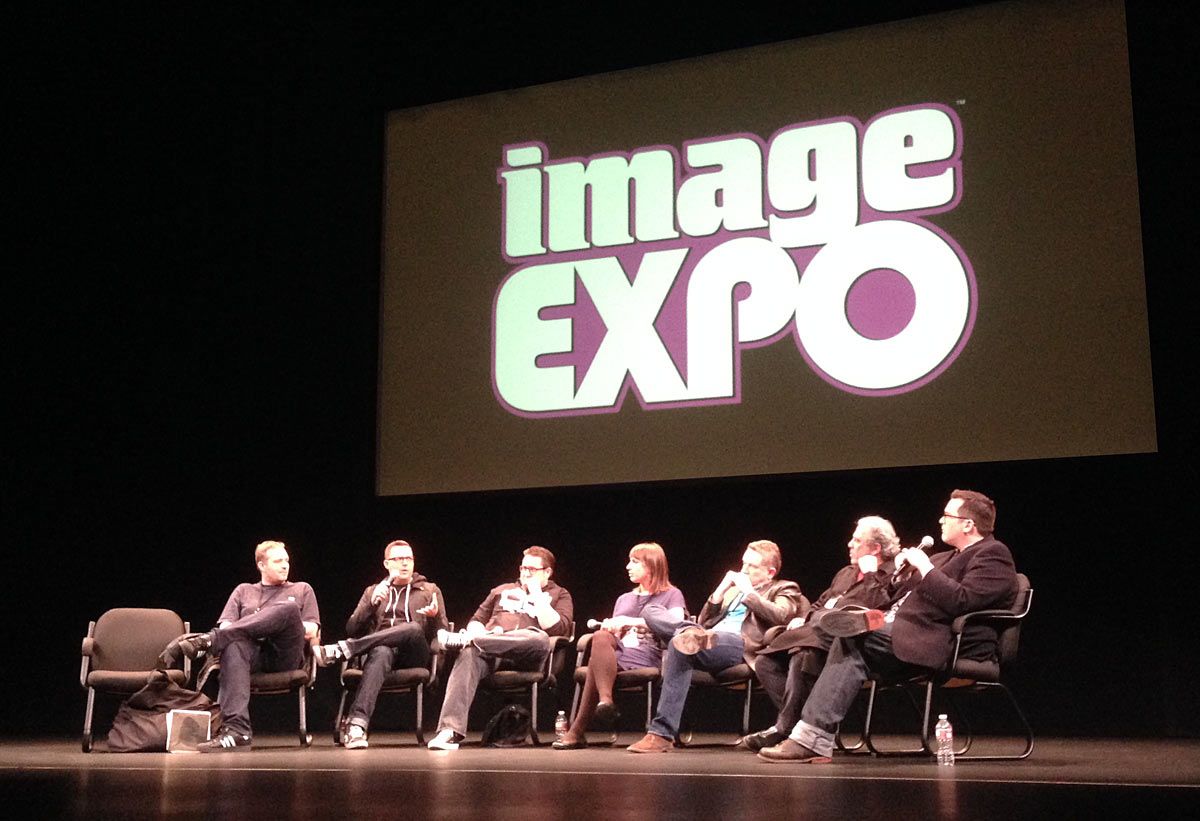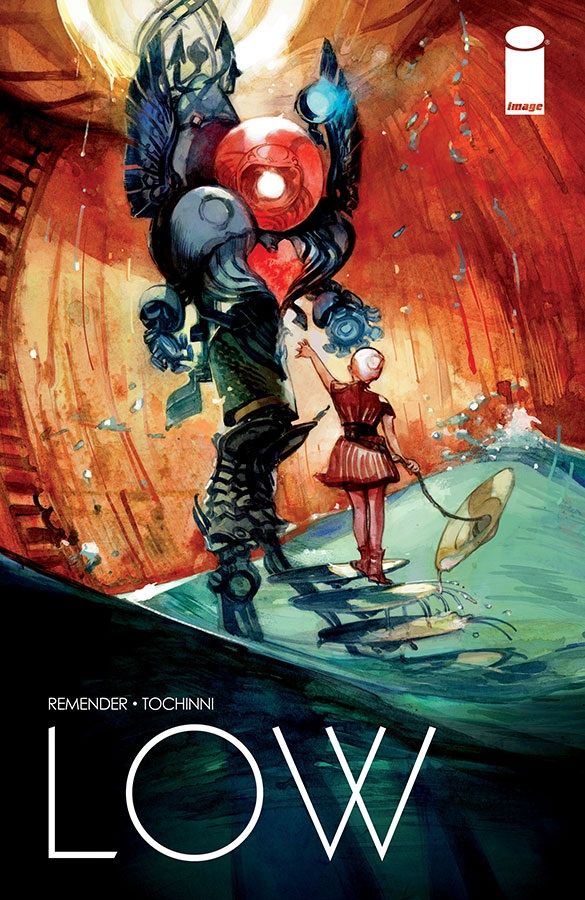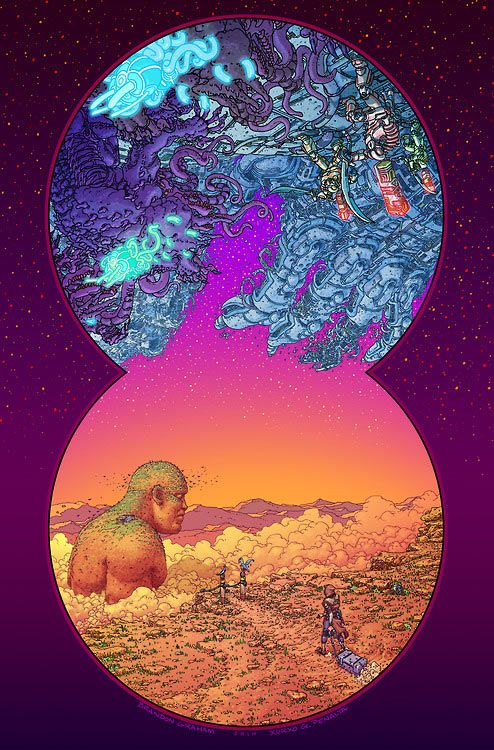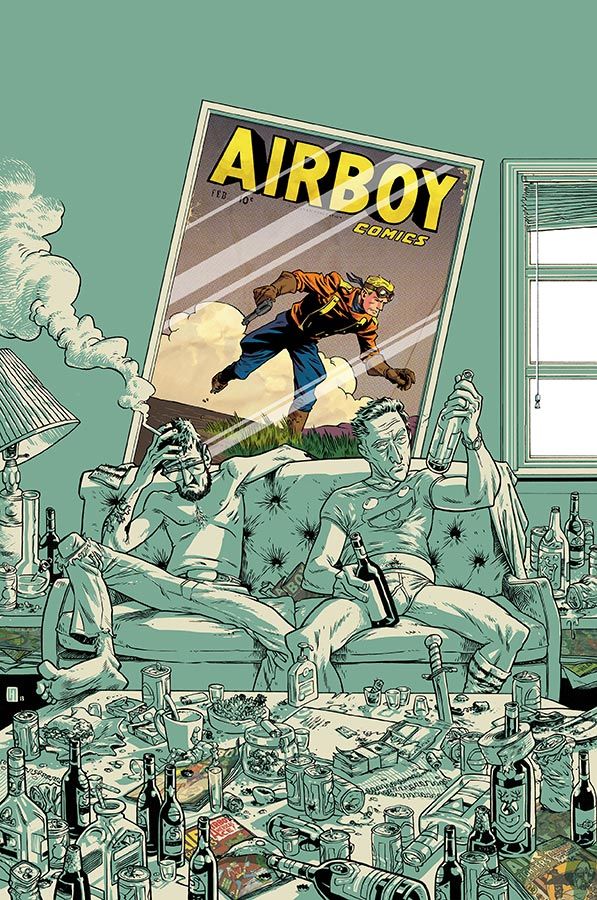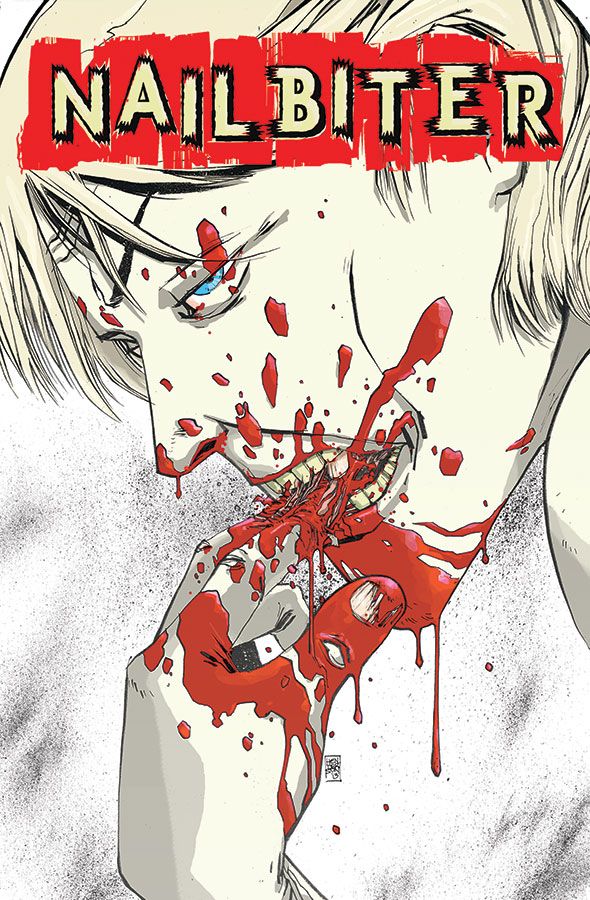The talent gathered for Image Expo's Creators That Are Just As Colorful As Their Comics panel were exactly as vibrant and honest as advertised. The panel consisted of Brandon Graham, Rick Remender, Joshua Williamson, Leila Del Duca, James Robinson, Image co-founder Jim Valentino, and moderator Joe Keatinge.
An eclectic group of Image Comics creators with different backgrounds, Keatinge was keen to find out how each person started on the path to where they are now. Thus, the new "Tech Jacket Digital" writer opened the dialogue by posing the question of what made each of the panelists want to create comic books in the first place.
IMAGE EXPO: Keynote Announces New Series from Snyder, Morrison, Remender & More
With an older brother who worked at a comic shop and a father who collected "Fabulous Furry Freak Brothers" comics, Graham noted that comic books have always been around him since he was a child.
"Porn comics are in my family for generations," he said with a smile. "A cobbler of sleaze."
It was at this point that Keatinge recalled the first time he met Graham, which was over pizza. "You slid over your sorority girl porno comic, 'Pillow Fight,' and you were like, 'A pleasure to meet you!'"
To which Graham playfully replied. "Don't act like I knocked the class out of that Pizza Hut."
During the 1990s Remender discovered and took inspiration from the likes of Evan Dorkin and Daniel Clowes. "I was adult-ish, and by this time, mainstream comics had lost me," the "Deadly Class" writer said. Remender also talked about walking into a comic shop when he was still reading mostly superhero stories and fondly remembered the proprietor telling him, "Fuck that, you've gotta read Wally Wood!"
To which, Remender eventually emphasized to the crowd, "I love Jack Kirby, but I get Wally Wood."
Williamson started off by quoting something that Keith Giffen once said: "You act as if I had a choice." The "Ghosted" scribe signaled out "X-Factor #87" as an early influence, as well as "Preacher." "I started reading 'Preacher' in college, and that was something that really caught my eye."
Initially, Williamson wanted to be an art director, and explained that when he was still in college he and some friends thought to put together their own comics. "We all wanted to make comics, but we were all artists," he said. "So I started writing scripts for my friends to draw."
IMAGE EXPO EXCLUSIVE: Keatinge & Del Duca's "Shutter" Snaps at Image
Del Duca and Keatinge had announced earlier in the expo that they would be collaborating on a new comic, "Shutter," to be launched in April. To this point, Del Duca's work has predominately been published online. She described comics as "a perfect combination of words and pictures." In addition, she cited Faith Erin Hicks' web-comic "Demonology 101" as an influence, and while in college, a friend was able to convince her that she could make a living being an artist.
When Robinson had the floor, he juxtaposed the younger Del Duca's background in the industry, cutting her teeth in web-comics, with that of his own career path, first trying to make his way in the film industry, and now in comics. "I'm listening to you talk about your web-comics, and I'm thinking to myself: 'I feel like a tyrannosaurus rex,'" Robinson said, poking fun at his age.
Robinson mentioned Frank Miller's work on Batman and Daredevil, as well as "Love and Rockets," and how the mix of superheroes and subversive elements had a great influence on him.
Valentino said his father read comics in World War II. Moreover, when his father saw he was drawing in a similar style, he brought home some comics for him to read. "It was like a religious experience," the comics legend said of his first experience flipping through those books.
"In 1962, I was 10 years-old at the dawn of the Silver Age," the Image Comics co-founder said, citing Stan Lee and Jack Kirby as important figures. "In 1972, I was 20 and reading R. Crumb, Vaughn Bodē and Justin Green." Ultimately, Valentino broke down the confluence of influences as "a weird mesh of sex, drugs and rock and roll, with superheroes."
For Keatinge, "Comics were always just kind of there." A native of Santa Monica, California, Keatinge would often frequent Hi De Ho Comics. "The store wasn't a mess, but it wasn't organized either. So I didn't think about publishers."
It wasn't until one particular issue of "Spawn" that the "Shutter" writer thought otherwise. "'Spawn' #10, which was written by Dave Sim, and that was all about doing creator-owned comics, and making your own shit -- that human beings make comics. I found out what Image is, and that was the first time I realized comics came from different publishers. At that point, I was like, "This is what I want to do for the rest of my life. No question."
While Keatinge asked the panelists to talk about the catalysts that inspired them to pursue their paths into the comics industry, it was an audience member that posed an equally interesting topic: What was the darkest period or lowest point that could have made the panelists rethink working in the industry?
"Until 'Shutter,' I got really jaded about comics, and came close to quitting," Del Duca admitted.
"After 'normalman,' I realized humor comics couldn't sell," Valentino lamented. But he was gracious and grateful about his collaboration with Rob Liefeld and Brian Murray and the success they were able to achieve in the years that followed.
Graham talked about the Christmas Day in which he spent the holiday on a friend's couch. "I was listening to the 'Lord of the Rings' audio book while my friend was having loud sex in the next room," Graham said. The colorful creator of the Eisner-nominated "King City" further explained that the editor he had a relationship with at Vertigo informed him they would soon be leaving their post. What's more is that the publisher of porn-comics he often freelanced for felt they had enough of his work already backlogged. Taking stock of his situation, Graham decided to just focus on working on projects that he felt were worth pursuing. "That night is when I first started work on 'King City.'"
POLL: Which Image Expo 2014 Announcements Are You Most Excited About?
Aside from comics, Remender's resume includes holding positions at Fox, Warner Brother and Electronic Arts. "I quit all of them," the "Black Science" writer said. "I did whatever I could to stay in comics."
Despite having low sales numbers on his creator-owned comics inclduing "Fear Agent" and "Strange Girl," and at times taking home an annual income of less than $20,000, Remender stuck it out. "I kept putting my life on the line to make it work," he said. "You hit a point where you're like, 'Holy fucking Christ, what have I done?'"
Remender credits a combination of tenacity to keep making creator-owned comics and an openness to take on work from Marvel and DC. "Eventually, I found a middle ground."
Williamson's low point came when he was writing work for hire projects earlier in his career and was essentially told what to write rather than crafting stories he liked. He said the job made him feel more like a stenographer than a writer. "I was making a lot of books that I would not have bought," the "Ghosted" writer admitted. "It was depressing, and I was still chasing the unhappiness. It wasn't until I started 'Ghosted' that I finally let go of it."
Of "Masks and Mobsters," "Captain Midnight" and "Ghosted," Williamson declared the projects as "the most me that I've ever written."
Stay tuned to CBR News for more on Image Comics and its upcoming titles.

